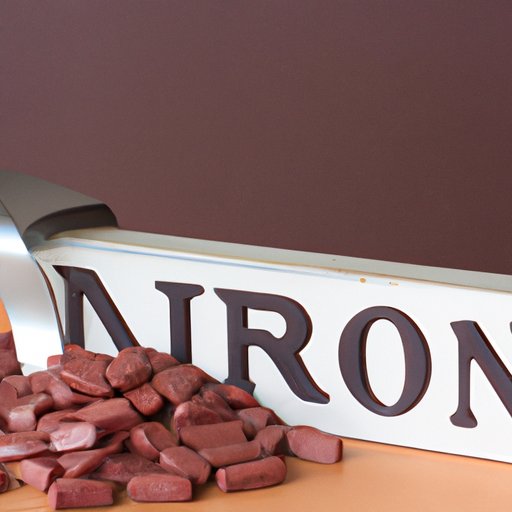Introduction
Iron is an essential mineral for the human body. It plays a major role in supplying energy to cells, transporting oxygen around the body, and helping enzymes function properly. Iron deficiency is one of the most common nutrient deficiencies, with symptoms including fatigue, weakness, and difficulty concentrating. Taking iron supplements can help replenish iron levels in the body and provide relief from these symptoms.

Types of Iron Supplements Available
There are two main types of iron supplements: ferrous sulfate and ferrous gluconate. Both forms contain the same amount of elemental iron, but ferrous sulfate has a higher bioavailability so it may be more effective at raising iron levels. However, ferrous sulfate can cause gastrointestinal side effects such as nausea and constipation. Ferrous gluconate is less likely to cause these side effects, but it may not be as effective at raising iron levels.

Tips on When and How to Take Iron Supplements for Best Absorption
To get the most out of taking iron supplements, it is important to take them at the right time and in the right amount. Iron should be taken on an empty stomach or at least two hours after a meal. This helps maximize absorption. It is also important to take the correct amount of iron. Taking too much iron can lead to toxicity and other health issues. The recommended daily dose of iron for adults is 18mg per day.
When taking iron supplements, it is important to avoid taking them with antacids or dairy products. These can interfere with iron absorption. It is also important to stay hydrated by drinking plenty of water throughout the day.
Potential Side Effects and How to Manage Them
The most common side effect of taking iron supplements is constipation. Other side effects include nausea, vomiting, abdominal pain, and dark stools. If you experience any of these side effects, it is important to speak to your doctor or pharmacist to find out if you are taking the right amount of iron. You may need to adjust your dosage or switch to a different form of iron.
If you experience constipation while taking iron supplements, there are several things you can do to help manage it. Increasing your fluid intake, eating more fiber-rich foods, and exercising regularly can all help keep your bowel movements regular. Your doctor or pharmacist may also recommend taking a stool softener or laxative to help relieve constipation.

Dietary Advice on Foods That Help Improve Iron Absorption
Eating certain foods can also help improve iron absorption. Vitamin C rich foods such as oranges, grapefruits, strawberries, bell peppers, and broccoli are especially beneficial. Eating these foods along with iron-rich foods such as red meat, poultry, fish, beans, nuts, and lentils can help increase absorption. Iron absorption is also improved by avoiding tea and coffee which can inhibit iron absorption.
Conclusion
Taking iron supplements is an effective way to replenish iron levels in the body and provide relief from symptoms associated with iron deficiency. Different forms of iron supplements are available, each with their own pros and cons. To get the most out of taking iron supplements, it is important to take them at the right time, in the right amounts, and to avoid taking them with antacids or dairy products. There are potential side effects of taking iron supplements, but they can usually be managed with lifestyle changes and over-the-counter medications. Eating certain foods can also help improve iron absorption. With the right information and advice, taking iron supplements for best absorption can be safe and effective.


